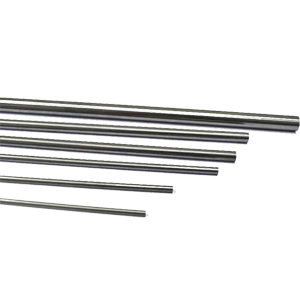Elements that affect the properties of steel products
Our superior product is metal filter element, it is essential to control the quality of raw materials. I will also popularize knowledge about filter element raw materials. In this article, we will first understand the elements that affect the properties of steel.
The quality and properties of steel are determined according to requirements, different needs need different elements. For users of the filter element, we have to decide according to the use environment.
1. Carbon
The higher the carbon content, the higher the hardness of the steel. But its plasticity and toughness are even worse.
2. Sulfur
It is a harmful impurity in steel, steel with high sulfur content tends to crack at high temperature, usually called thermal brittleness.
3. Phosphorus
It can reduce the plasticity and toughness of steel obviously, especially at low temperature, this phenomenon is called cold brittleness. In quality steel, phosphorus and sulfur must be strictly controlled. But on the other hand, low carbon steel contains higher phosphorus and sulfur, which makes it easier to cut, It is beneficial to improve the machinability of steel.
4. Manganese
It can improve the strength of steel, It can weaken and eliminate the harmful effects of sulfur and improve the hardenability, high alloy steels with high manganese content have good wear resistance and other physical properties.
5. Silicon
It can increase the hardness of steel, but the plasticity and toughness decrease. Electrical steel contains a certain amount of silicon, which can improve soft magnetic properties.
6. Tungsten
It can improve red hardness and heat strength of steel and improve the wear resistance of steel.
7. Chromium
It can improve the hardenability and wear resistance of steel, and improve the corrosion resistance and oxidation resistance of steel.
8. Vanadium
It can refine the grain structure of steel and improve the strength, toughness and wear resistance of steel. When it is melted into austenite at high temperature, the hardenability of the steel can be increased, conversely, when it exists in the form of carbide, it will reduce its hardenability.
9. Molybdenum
It can obviously improve the hardenability and thermal strength of steel, prevent temper brittleness, improve remanent magnetism and coercive force.
10. Titanium
The grain structure of the steel can be refined and the strength and toughness of the steel can be improved. In stainless steel, titanium can eliminate or lighten the intergranular corrosion phenomenon of light steel.
11. Nickel
It can improve the strength and toughness of steel, improve hardenability. When the content is high, some physical properties of steels and alloys can be significantly changed, and the corrosion resistance of steels can be improved.
12. Boron
When the steel contains trace boron(0.001%-0.005%), the hardenability of the steel can be doubled.
13. Aluminum
It can refine the grain structure of steel, inhibit the aging of low carbon steel, improve the toughness of steel at low temperature, and improve the oxidation resistance of steel, improve wear resistance and fatigue strength of steel.
14. Copper
The prominent effect is to improve the atmospheric corrosion resistance of ordinary low alloy steel, especially when used in combination with phosphorus.
If you have any other question about it please contact us!
Application of Basket Strainers in Conductive Agent Production
View More >Applicaton of Self-cleaning filter
View More >Copyright © Hebei Huanzheng Filter Equipment Co., Ltd. All Rights Reserved